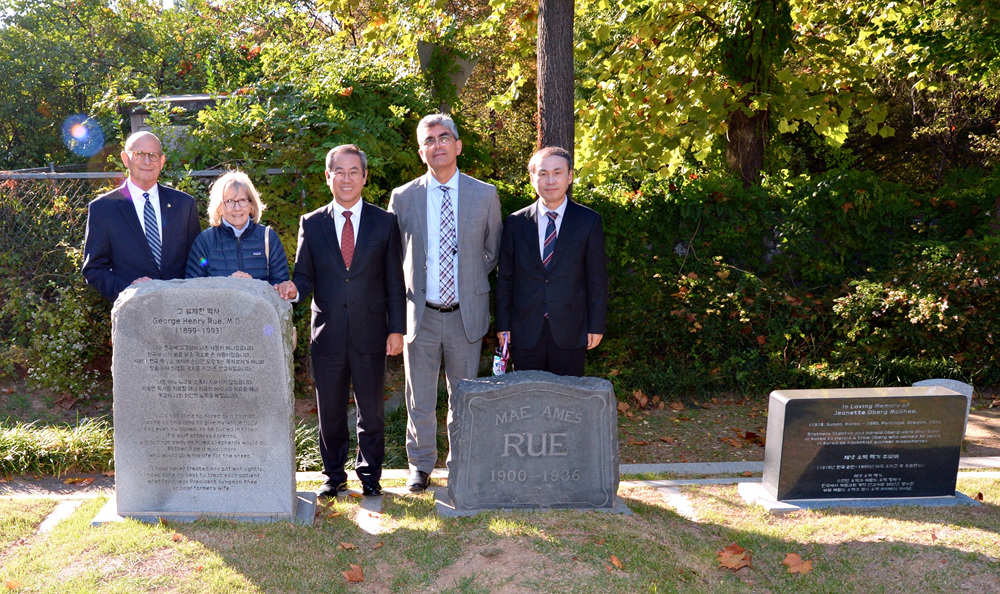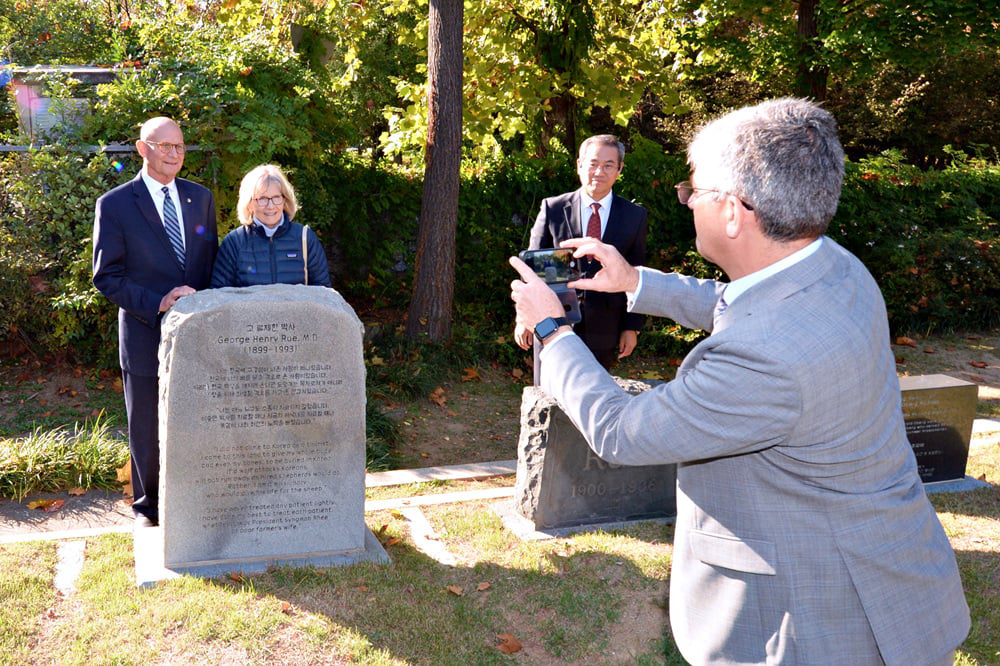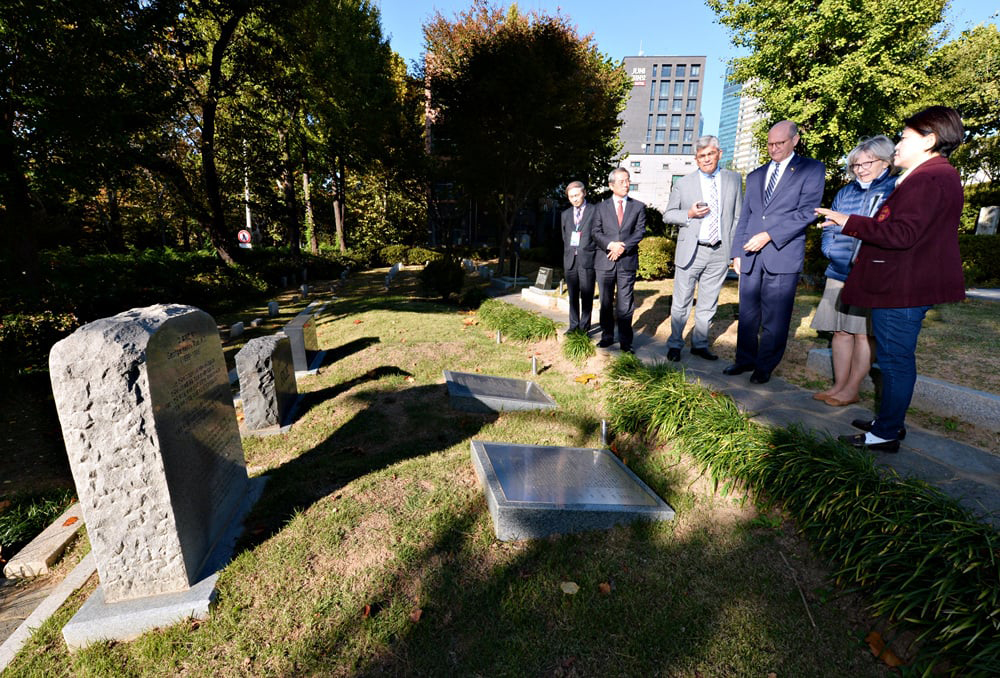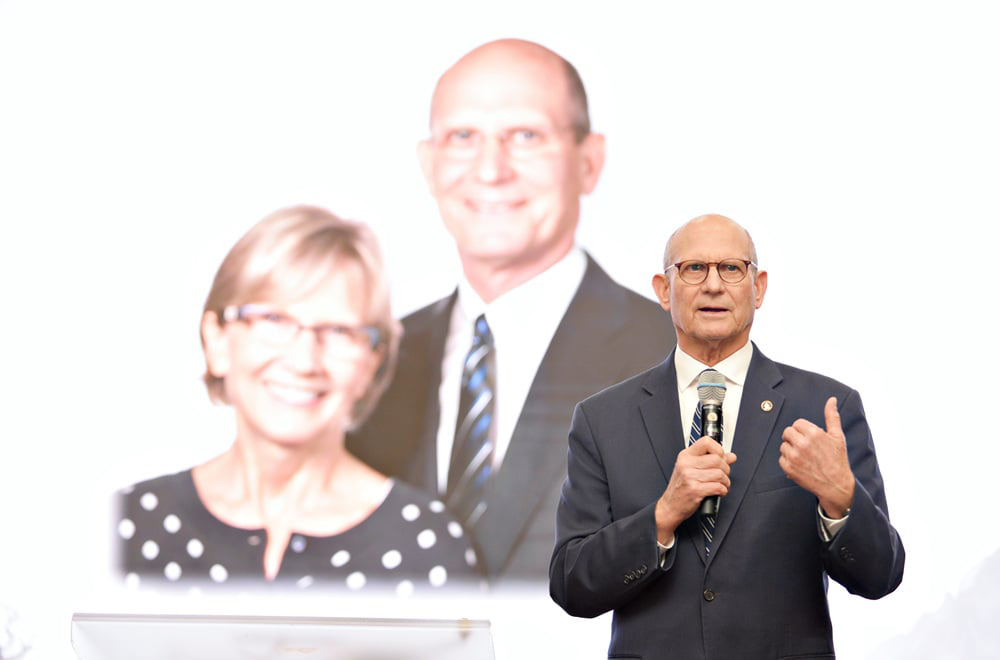General Conference President Ted Wilson and Mrs. Wilson visited the Yanghwajin Foreign Missionary Cemetery in Seoul. President Wilson is the first serving General Conference President to visit this site during a trip to Korea.
Located in Hapjeong-dong, Seoul, the cemetery is the final resting place of 145 foreign missionaries and their families who devoted their lives to the Korean people during the Japanese colonial era.

On November 6th, 2024, the third day of their visit to Korea, the President and Mrs. Wilson, accompanied by Magdiel, the President’s assistant, and Park JungTaek, executive secretary of the KUC, visited the Yanghwajin Foreign Missionary Cemetery.
Wilson first watched a video in the small chapel, which introduced the history of foreign missionary work in Korea and the origins of the Yanghwajin Missionary Cemetery.
Next, he visited the gravesites to honor several prominent missionaries, including journalist Bethell, who founded The Independent newspaper and gave a voice to oppressed Koreans; the Hardy missionary family, key figures in the Wonsan Revival Movement; Dr. Hulbert who was known for his deep love for Korea; and Kendrick, who dedicated himself to educational efforts and passed away just nine months after arriving in Korea.
President Wilson expressed his admiration for the missionaries’ efforts to spread Christianity, particularly their contributions to Korea’s independence through both direct action and indirect support during the Japanese occupation. He also took photos at several points to capture the moment’s significance.

Despite the chilly weather just before winter, President Wilson spent considerable time paying his respects at the gravesites of Dr. Je-han Ryu, his wife Mae Ames Ryu, and Janet Overbaugh McGhee, Adventist missionaries. Kang SoonKi, President of the KUC, explained Dr. Ryu’s noble life as the first Physician to the President of Korea and Mae Ames Ryu’s contributions as a pioneer of Sahmyook Medical Center.
President Wilson prayed, “As we live in these last days, may we fully surrender our lives to God. Let us follow the selfless example of the missionaries’ sacrifices and devotion, and may we be inspired to proclaim the three angels’ messages faithfully.”

After his visit, which lasted about an hour and a half, President Wilson remarked, “The cemetery is beautifully maintained. I can feel the warm hearts of the Korean people and the church in honoring the missionaries’ sacrifices. I understand volunteers run the site—truly admirable people—and I am deeply grateful for their dedication.”
He continued, “What moved me most was the selfless lives of the missionaries. Dr. Ryu’s words especially touched me: He always gave his best care, whether treating the President or a rural woman. We, too, must use our daily talents to serve others and share the gospel.”
In a later meeting with staff from the KUC and the publishing house, President Wilson shared his reflections on his visit to the Yanghwajin Foreign Missionary Cemetery, emphasizing, ‘I was profoundly impacted by the foreign missionaries buried there who dearly loved Korea. They were faithful unto death in bringing Christ’s gospel to this nation, which holds great significance in God’s plan.'”
He continued, “I paused for some time at the monument of Dr. Ryu and his wife Mae, who dedicated many years to providing outstanding medical and healthcare services to the Korean people, serving individuals from all social and economic backgrounds, without distinction. What a beautiful example of selfless ministry! We too must follow their example and obey God’s guidance and instructions, just as they did.”

In the evening, at the East-Central Korean Union Revival Meeting held at Sahmyook Central Church, President Wilson held up a brochure about the Yanghwajin Foreign Missionary Cemetery and said, “This is a very sobering place that helps us understand the sacrifices of the missionaries. Especially, Dr. Ryu and Mae Ames Ryu were exemplary individuals who gave everything they had for God’s work here in Korea.”
